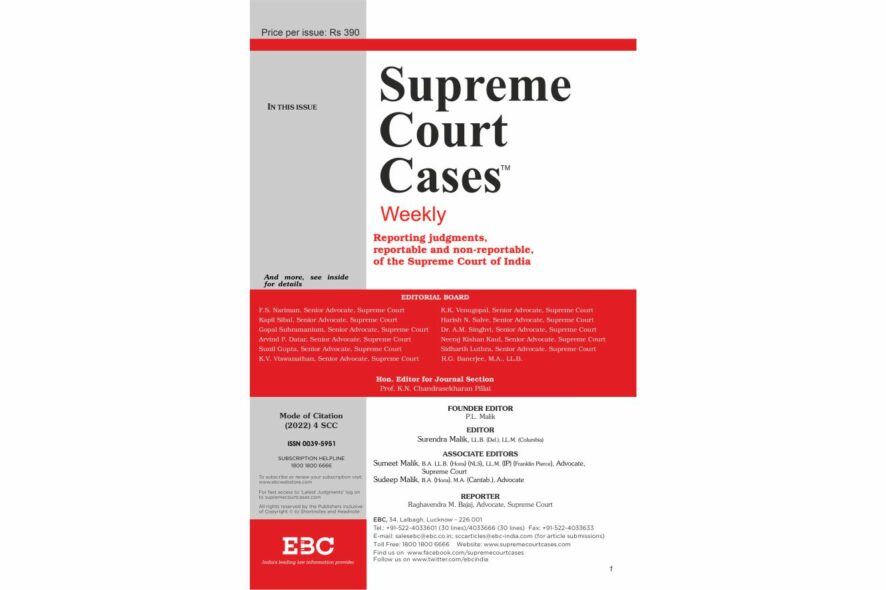Arbitration and Conciliation Act, 1996 — Ss. 8, 11, 7, 2(1)(h), 16 and 45 — Non-signatory or non-party to arbitration agreement: Arbitration against, or by non-signatory or non-party to arbitration agreement, when may be invoked, discussed. The scope, ambit and validity of Group of Companies doctrine, explained. Doubting the rulings in Chloro Controls, (2013) 1 SCC 641, and cases following it, matter referred to larger Bench. [Cox & Kings Ltd. v. SAP India (P) Ltd., (2022) 8 SCC 1]
Arbitration and Conciliation Act, 1996 — Ss. 8, 11, 7, 2(1)(h), 16 and 37 — Group of Companies Doctrine: Applicability of Group of Companies Doctrine to make a non-signatory or non-party group company (i.e. a company who has not signed the arbitration agreement) a party to arbitration proceedings, explained. [ONGC Ltd. v. Discovery Enterprises (P) Ltd., (2022) 8 SCC 42]
Civil Procedure Code, 1908 — Or. 23 R. 3 and S. 89 — Consent decree passed in Lok Adalat: Setting aside of consent decree passed in Lok Adalat, on ground that matter was referred to Lok Adalat by trial court cannot be approved for doubting genuineness of consent decree. [Hemantha Kumar v. R. Mahadevaiah, (2022) 8 SCC 140]
Civil Procedure Code, 1908 — Or. 6 R. 17: Amendment of suit is not permissible when the same changes the nature of suit. [Asian Hotels (North) Ltd. v. Alok Kumar Lodha, (2022) 8 SCC 145]
Constitution of India — Arts. 226 and 227 — Law declared by High Court — Binding effect of: There is primacy of orders of High Court over those of statutory tribunals in case of conflicting orders. Law declared by the High Court in the State is binding on authorities and tribunals under its superintendence and they cannot ignore it. Further, tribunals are subordinate to High Court insofar as the territorial jurisdiction of High Court is concerned. In case of conflicting orders passed by statutory tribunals and the High Court, it is the orders passed by the constitutional courts, which would prevail over the orders passed by the statutory tribunals. [State of A.P. v. Raghu Ramakrishna Raju Kanumuru, (2022) 8 SCC 156]
Protection of Women from Domestic Violence Act, 2005 — Ss. 17(1) & (2) and S. 19 — Nature and scope of right to reside in shared household: Scope of right to reside in the shared household conferred under DV Act and categories of women upon whom the said right is conferred, discussed. Wide and comprehensive scope of “domestic relationship”, explained in detail. [Prabha Tyagi v. Kamlesh Devi, (2022) 8 SCC 90]






